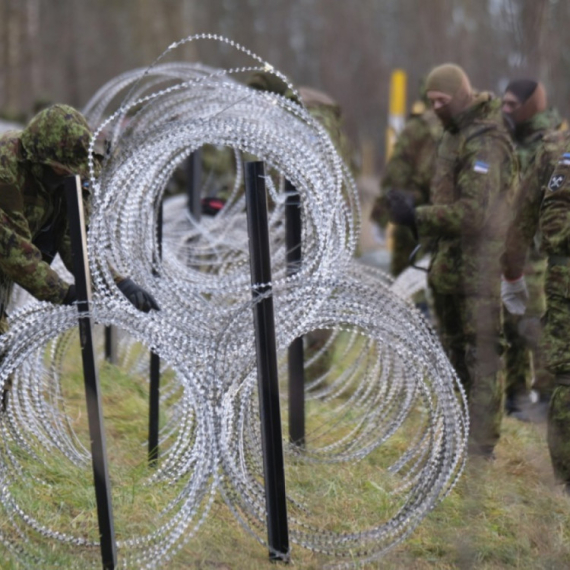UNHCR reports on Croatia returnees
Less than half of 120,000 ethnic Serbs registered as returnees in Croatia actually live in the country, UNHCR survey says.
Thursday, 17.05.2007.
12:39

UNHCR reports on Croatia returnees
The survey also found that 40 percent of the registered Serb returnees had settled in the areas, mainly in Serbia or Bosnia and Herzegovina, where they had sought refuge during the 1991-95 Croatia War, but visit Croatia at least once a year.Some 6 percent reside sporadically in Croatia, while about 11 percent of the returnees have died since coming back.
The "Sustainability of Minority Return in Croatia" survey was conducted with three objectives: to obtain a reliable figure for the number of registered returnees who actually live in Croatia; to create basic indicators of the sustainability of return to Croatia; and to use these results to help develop policies to improve living conditions for returnees.
Covering a representative selection of 1,450 registered returnees and conducted between September and December 2006 with the help of the Croatian Red Cross and the Serb Democratic Forum, it also found that some 43 percent of returnees are aged over 60, while 46 percent are retired. The average age of all returnees is 51, compared to the Croatian average of 39 years.
The survey also found that 31 percent of returnee Serbs were unemployed, compared to a countrywide average of 17 percent for Croatia. Only 8 percent were employed or self-employed, while 11 percent were dependent on humanitarian assistance.
Meanwhile, some 88 percent of returnees lived in the same house or apartment that they had occupied before fleeing, while 43 percent of the respondents said they were satisfied with their accommodation compared to 28 percent who were openly dissatisfied with their housing. On a positive note, the study revealed that 73 percent of the interviewed returnees believed they were better off now.
Mesić and Bagić concluded that the most effective way to ensure increased and sustainable return of the Serbs was to develop and implement programs aimed at revitalizing the economy in areas of return and at tapping the labor and entrepreneurial resources of both the Serb returnees and the majority Croat population.
Wilfried Buchhorn, the UNHCR representative in Croatia, said he agreed with the conclusions. "While the study has confirmed that the security situation, status and property issues are no longer considered as major obstacles to return, stronger, concerted effort on the national, but also international level is required in order to create better living and employment conditions for the returnees," he said. "At the same time, adequate accommodation should be secured for all those persons who wish to return and remain in Croatia."
The country's leadership, meanwhile, pledged to work for the continued return and reintegration of Croatia's Serb community. "Facilitating the return of Serb refugees to Croatia is no charity, or a gesture of generosity to the Serbs. The creation of conditions for the return of all, including the Serbs, is in the best national interest in the full sense of the word," President Mesić said in a keynote address at the presentation of the survey findings.
"There is no alternative to the process of return, and there should not be any. There is no alternative to coexistence, tolerance and equality of all citizens of this country," he added.




































Komentari 4
Pogledaj komentare